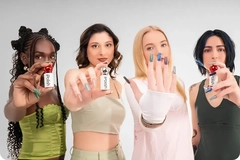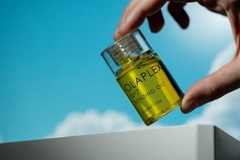Water crisis endangers menstrual health: Industry’s role in fighting period poverty

Limited clean water access creates profound barriers to safe, dignified menstrual management and undermines basic hygiene.
Personal Care Insights looks at how the industry can help fight the stigma and health hazards associated with water access and menstruation management, with non-profit organizations UNICEF, Freedom4Girls, Be Girl, and Period.
According to Simavi, of the 800 million people who are menstruating daily, 500 million do not have the resources they need to manage their period, including clean water. Approximately 40% of women in low-income communities report challenges with menstruation directly tied to water-related issues, causing stress and discomfort, reports the International Water Management Institute.
The UN’s World Water Development reports that only 46% of people globally have consistent water availability, and many rely on unsafe water for washing.
This discrepancy leads to increased risks of infection, missing school, loss of public participation, and high stigma. Be Girl says all these factors further entrench gender inequalities.
Marije Broekhuijsen, water, sanitation, and hygiene (WASH) specialist at UNICEF, tells us: “Limited access to clean water directly undermines girls’ and women’s ability to wash themselves, their hands, or reusable menstrual materials, leading to life-threatening health complications. Without water, menstrual health and hygiene management become unhygienic and stressful, forcing many girls to miss school or work.”
“Successful menstrual health programs consider the full context — not just providing products but ensuring access to adequate WASH services, alongside education and stigma reduction initiatives. Programs that only distribute products without addressing access to water and toilets often fail to improve girls’ health or school attendance.”
Reusable and waterless innovation
Reusables can alleviate some pressure off people who menstruate and do not have access to clean water. Freedom4Girls says antimicrobial period underwear, washable in limited water, and portable wash-and-dry bags succeeded in Bangladesh and Somalia.
 Reusable menstrual products can support hygiene in areas with limited water availability. “Reusable products can be a realistic and sustainable solution in low-resource settings, even where water is limited, provided minimum enabling conditions are met. This includes having some level of access to clean water, soap, and safe, private spaces for washing and drying,” adds Be Girl.
Reusable menstrual products can support hygiene in areas with limited water availability. “Reusable products can be a realistic and sustainable solution in low-resource settings, even where water is limited, provided minimum enabling conditions are met. This includes having some level of access to clean water, soap, and safe, private spaces for washing and drying,” adds Be Girl.
However, reusable options are not always feasible in water-scarce settings because basic hygiene still needs upkeep. For example, the reusable dignity kits Freedom4Girls delivers in Kenya need access to clean water.
“Without helpful education regarding these products and access to clean water and soap, this solution is far more impractical for communities in need,” says Emily Swanigan, strategic communications manager at Period.
In Mozambique, Be Girl succeeded when product delivery was paired with menstrual education and WASH assessments. In areas where schools had access to clean water and private washing spaces, reusable products like its PeriodPanty were adopted.
Conversely, programs using washable pads faced practical challenges in areas where these conditions were lacking. Recipients did not use the products consistently due to the difficulty of washing and drying them discreetly, especially during rainy seasons or where households had no private bathrooms.
In these situations, waterless options emerge as a solution.
“There’s increasing consensus that water-efficient or waterless menstrual products are essential in climate-vulnerable and water-scarce settings. Waterless innovations advance sustainability and ensure health in areas without safe water. They also relieve environmental burdens by reducing waste and water use,” says Freedom4Girls.
Be Girl adds: “Water-efficient or waterless menstrual solutions are essential. These innovations will be critical not just for rural or displaced populations, but also for urban poor communities, and future climate resilience.”
The most common period products are disposables such as pads or tampons. But Be Girl explains how these are not viable for women dealing with water scarcity.
“While some may consider disposable products in water-scarce areas, we do not see them as a reliable or sustainable solution. Disposables create ongoing dependency, generate waste in communities that often lack waste management infrastructure, and when hygiene practices are limited, they can pose significant health and environmental risks.”
To battle the environmental effects of one-use sanitary options, UNICEF supports solutions that fit the local context — from providing disposable pads in emergency contexts where washing is hard, to piloting biodegradable options where appropriate.  Limited water access threatens menstrual hygiene.
Limited water access threatens menstrual hygiene.
In some countries, UNICEF has explored menstrual cups, paired with education, awareness actions, and follow-ups to ensure uptake and safe use.
Company combat
Be Girl states that companies, particularly those in menstrual health, have a shared responsibility to go beyond product sales. It calls for investment in safe, accessible, and sustainable solutions.
“This includes designing for diverse contexts, supporting education and advocacy, partnering with governments and NGOs, and contributing to systems that enable long-term menstrual equity. Access to clean water is deeply intertwined with this mission,” says the menstrual health charity.
Freedom4Girls explains that companies in the personal care industry should take the following actions to join the fight for access to safe period care.
- Provide affordable, safe menstrual products.
- Invest in water and sanitation infrastructure.
- Fund and collaborate on education and destigmatization campaigns. In-house as well as external partners.
- Ensure workplace and public spaces offer period-friendly WASH facilities.
- Investment in local manufacturing and subsidising environmentally friendly products is critical to reach marginalised communities.
“There are positive innovations and partnerships, but widespread gaps remain, especially regarding sustainable product design, scaling access, and advocating for reform,” says Freedom4Girls.
Period applauds some of the advancements the personal care industry has made in recent decades and believes that innovation in menstrual health management will continue to provide new opportunities for communities in need.
UNICEF suggests that companies make affordable, environmentally friendly products widely available to women and girls, and support WASH infrastructure in schools and communities.
 NGOs call for collaboration with industry players to advance menstrual equity and water access. “Companies have a significant role to play. As key market players, they can challenge stigma, advocate for menstrual equity, push for policy integration across education, health, and WASH agendas, and work to remove taxes on menstrual materials,” says Broekhuijsen.
NGOs call for collaboration with industry players to advance menstrual equity and water access. “Companies have a significant role to play. As key market players, they can challenge stigma, advocate for menstrual equity, push for policy integration across education, health, and WASH agendas, and work to remove taxes on menstrual materials,” says Broekhuijsen.
“They also have an opportunity to engage their customers in cause-related marketing campaigns that raise funds and awareness for WASH programs.”
Regulatory push
Companies are critical in shaping and supporting public policy by bringing practical, on-the-ground insights, data, and scalable innovations to inform more effective national strategies.
“While some companies are beginning to take bolder steps in this space, more collective advocacy and public-private collaboration are needed. Menstrual equity and WASH access are systemic challenges, and they require systemic responses,” says Be Girl.
However, in the end, policy change is in the hands of governments.
“For progress to be sustainable, governments need to recognize the value of private-sector input, adopt market-enabling approaches, and foster collaborative ecosystems that allow companies, civil society, and public institutions to co-create solutions. Without this kind of partnership, many promising innovations risk being siloed or underutilized,” adds Be Girl.
Freedom4Girls says a significant way the industry can get involved is by pushing for price subsidies and product accessibility at scale, especially in vulnerable communities.
Period encourages companies to support federal policies that advance menstrual equity across the US, such as the Period Proud Act and Menstrual Equity for All Act.













